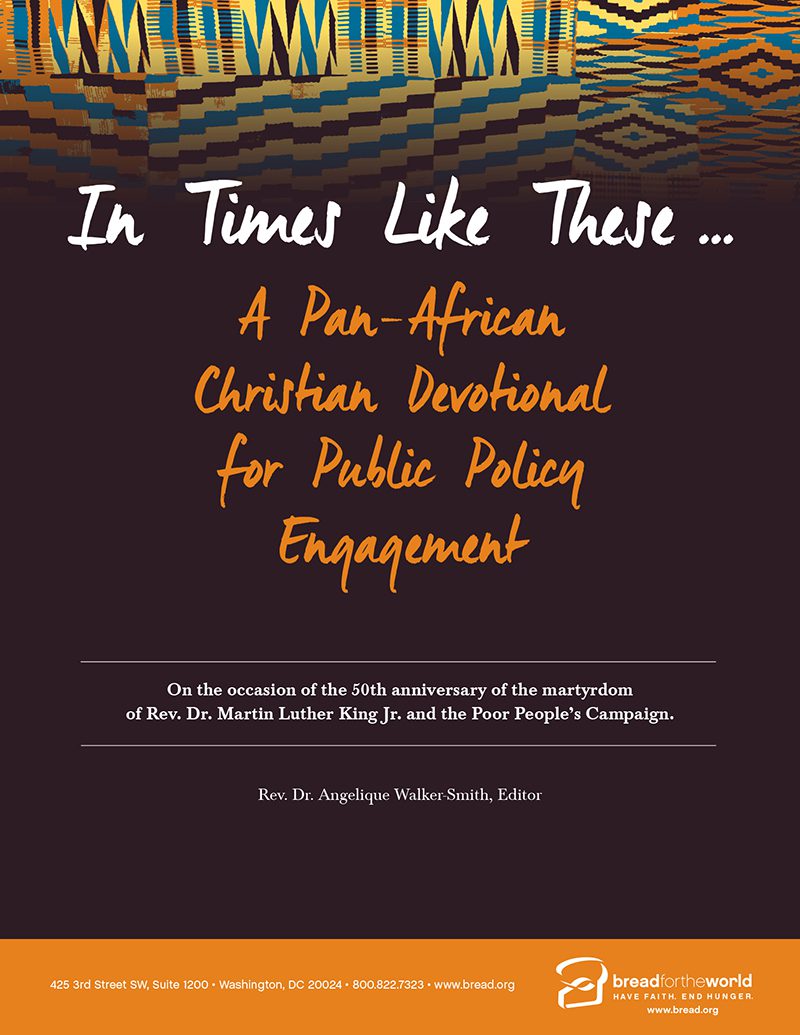By Angelique Walker-Smith
This month, we recognize the joys and challenges of work. Labor Day honors the labor movement and workers—who have contributed tremendously to the well-being of the country. This public holiday is complemented by a biblical understanding of the personal and the collective approaches we should take in the pursuit of dignified work.
Our September Pan-African devotional probes the meaning of dignified work through biblical reflections, prayers, songs, and historical perspectives. The devotional highlights policies that support dignified work and equitable work practices, which would contribute to the goal of ending hunger and poverty.
In the devotional, Rev. Everdith Landrau invites a personal response to the definition of dignified work. She says that this can drive our communal vision of work for all. She informs our collective response by citing Ecclesiastes 3:12-13 and the writings of the mystic Dr. Howard Thurman. The scripture states, “I know that there is nothing better for people than to be happy and to do good while they live. That each of them may eat and drink and find satisfaction in all their toil. This is the gift of God.”
Dr. Howard Thurman says, “Don’t ask what the world needs. Ask what makes you come alive and go do it. Because what the world needs is people who have come alive.”
Rev. Landrau points out that to do so can be difficult: “Every person who has encountered the challenges of being laid off from a job, an unexpected illness, a natural disaster, or poverty, know that finding dignified work does not always come easy.”
In addition, Rev. Q. Bernard Driskell writes about ensuring that affordable healthcare is supported in the work place. He points out that that those affected by hunger and poverty cannot sustain cuts to programs like Medicaid and the Children’s Health Insurance program, whether they are employed or not.
Rev. Lionel Louw, from South Africa, explains that challenges like these reflect the divisions among us. He says that we “live in a world that is characterized by binaries: north and south, rich or poor, white or black, haves and have nots.” He says that “we are challenged to redefine our relationships and recognize our common humanity. He invites us to unite and work together for all, with a global faith lens focused on how policies reflect our community values.
Dr. Charles Brown reminds us that this was done during the 1968 Poor People’s Campaign envisioned by the Rev. Dr. Martin Luther King Jr. This campaign advanced dignified work.
Angelique Walker-Smith is senior associate for Pan-African and Orthodox Church Engagement at Bread for the World.



